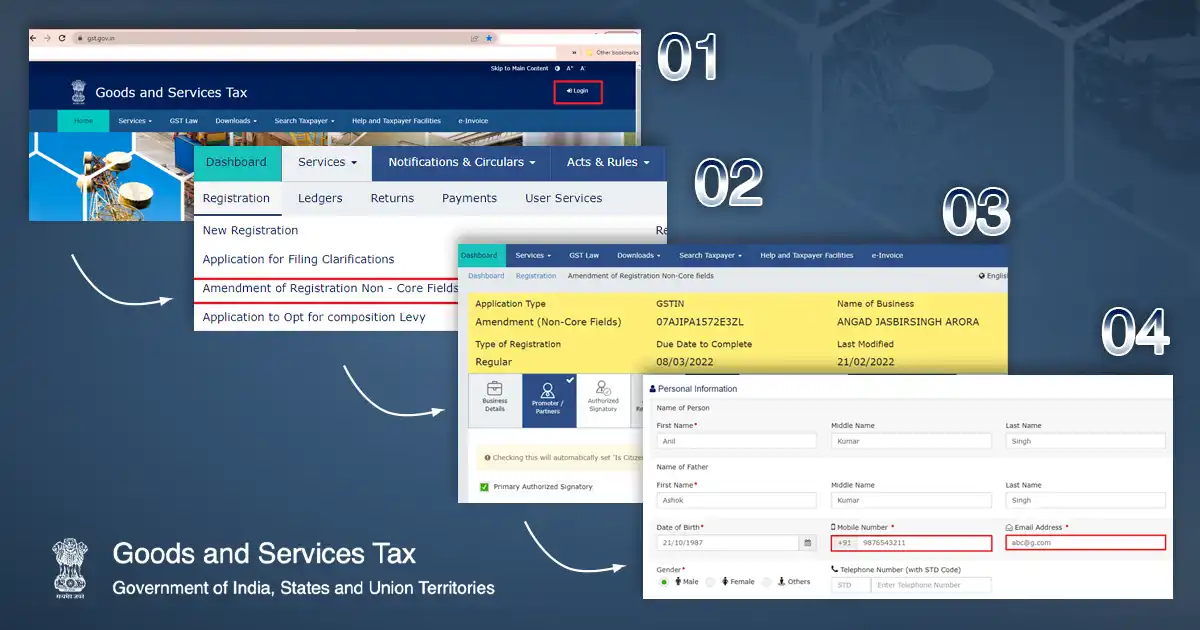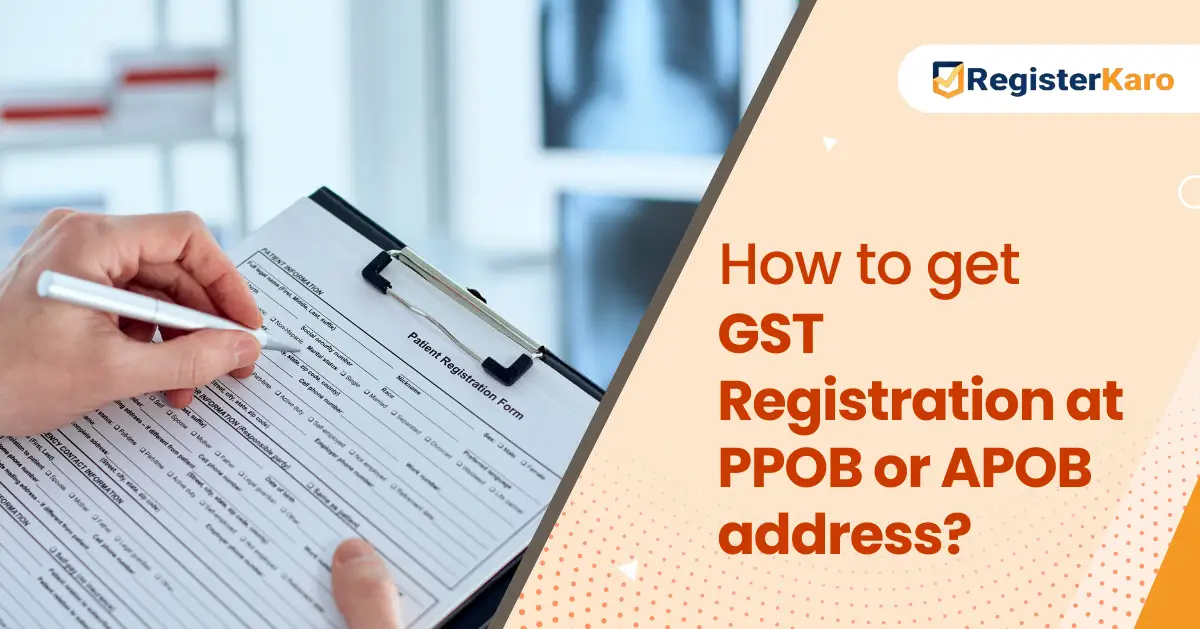
Introduction
The import of services under GST is an important aspect for businesses involved in cross-border transactions. Under the GST applicability, imported services are treated similarly to goods in terms of tax liability. GST is levied on imported services to ensure that foreign service providers are subject to Indian tax laws, just like domestic ones.
For businesses to stay compliant with GST compliance in India, understanding GST import rules is essential. Importers must follow the GST filing process and ensure timely tax payments to avoid penalties. Additionally, businesses should know how service tax has been replaced with GST on services to ensure smooth operations and compliance with the law.
What Are Imported Services Under GST?
Imported services under GST refer to services that are provided by a foreign service provider to a recipient in India. These services may not involve any physical movement of goods but are still subject to GST. According to GST import rules, the place of supply of such services is deemed to be India, and the recipient (importer) is responsible for paying the applicable tax.
Examples of imported services include consulting services, software subscriptions, legal services, and intellectual property rights usage. To comply with GST compliance in India, businesses must ensure they adhere to the GST filing process and pay the tax on time. The introduction of GST on imported services has replaced the previous service tax regime, making it easier to collect and manage taxes on cross-border transactions.
GST Applicability on Imported Services
The import of services under GST is subject to specific tax rules and regulations that ensure compliance with the Indian tax system. As per GST laws, any service that is received by a person in India from a foreign service provider is considered an imported service and is liable to GST.
Under GST applicability, the recipient in India is required to pay the GST on import of services under the reverse charge mechanism (RCM). This means the Indian recipient, rather than the foreign supplier, is responsible for paying the tax.
Key Aspects of GST on Imported Services
- GST Filing Process: Importers of services must include the tax paid on imported services in their GST filings through the relevant returns. They need to report these transactions in the GST returns (GSTR-1, GSTR-3B) under the reverse charge mechanism.
- GST Import Rules: The place of supply for imported services is considered to be India, which makes them subject to Indian GST laws. Services such as consulting, legal services, and subscription-based services fall under these rules.
- Service Tax Transition: With the introduction of GST, service tax on imported services was replaced, and now businesses must comply with the new GST regime for accurate reporting and tax payments.
Reverse Charge Mechanism (RCM) on Import of Services
Under the GST laws of India, the Reverse Charge Mechanism (RCM) applies to the import of services under GST. This means that when a business in India imports a service from a foreign supplier, the recipient (importer) is liable to pay the GST, rather than the foreign service provider. The purpose of RCM is to ensure that domestic recipients of imported services comply with the Indian GST system and remit the applicable tax directly to the government.
Key Features of RCM on Imported Services
- GST Applicability: The import of services under GST is treated similarly to the import of goods in terms of tax liability. As per GST applicability, the place of supply for imported services is considered to be India, making them subject to Indian GST laws.
- GST Import Rules: Under GST import rules, the recipient of the service is responsible for paying the tax under the reverse charge mechanism. This includes services such as consulting, intellectual property rights, or subscription-based services that are provided by foreign suppliers.
- GST Compliance India: Businesses must ensure they comply with GST compliance India by correctly accounting for the tax under RCM. The importer is required to report the imported services and the GST paid in their GST filings (GSTR-1 and GSTR-3B).
- Service Tax Transition: Before the implementation of GST, imported services were subject to service tax. However, under the GST regime, service tax has been replaced, and RCM ensures that the tax is paid directly by the importer, making it simpler for the government to track and collect taxes.
- GST Filing Process: Businesses importing services must include the tax paid on imported services in their GST returns. The GST paid can also be claimed as input tax credit (ITC) if the services are used for business purposes, subject to the standard GST rules.
How to Calculate and Pay GST on Imported Services
Under Indian GST laws, businesses importing services must follow specific procedures to calculate and pay GST on the import of services under GST. Here’s a step-by-step guide on how to calculate and pay the applicable GST:
1. Determine the Value of Imported Services
The first step is to determine the value of the imported service. The value includes the cost of the service plus any other charges, such as shipping, handling, or customs duties (if applicable), as per GST import rules.
2. Identify the Applicable GST Rate
GST on imported services is charged at the rate applicable to the service category. Most services are taxed at a standard rate of 18%, but some services may have a different rate depending on their classification under GST applicability.
3. Apply Reverse Charge Mechanism (RCM)
Under GST import rules, the reverse charge mechanism (RCM) applies, which means the importer (recipient) is responsible for paying the GST, not the foreign service provider. The importer will pay the GST directly to the government.
4. Calculate the GST Payable
Once the value of the imported service and the applicable rate are known, the GST payable can be calculated as follows:
- GST Payable = Value of Service x GST Rate
For example, if the value of the service is ₹10,000 and the GST rate is 18%, the GST payable would be ₹1,800.
5. Report in the GST Filing Process
The importer must report the imported service and the corresponding GST paid in their GST filings (GSTR-1 and GSTR-3B). Under RCM, these transactions must be disclosed in the relevant sections of the GST returns.
6. Pay GST on Imported Services
Once the calculation is done, the GST on imported services must be paid through the GST portal. The payment can be made online using the GST filing process by selecting the appropriate tax category (IGST in this case) and making the payment.
7. Claim Input Tax Credit (ITC)
If the imported service is used for business purposes, the importer can claim the input tax credit (ITC) on the GST paid under RCM, provided they fulfill GST compliance India requirements. This helps reduce the overall tax liability.
Input Tax Credit (ITC) for Imported Services
Under the Indian GST laws, Input Tax Credit (ITC) allows businesses to claim a credit for the GST paid on imported services, provided the services are used for business purposes. This helps businesses reduce their overall tax liability by offsetting the tax paid on imports with the tax collected from their customers. Here’s a breakdown of ITC for imported services:
Eligibility for ITC on Imported Services
- GST Compliance India: To claim ITC on imported services, the taxpayer must be registered under GST and meet the requirements set by GST Compliance India. This includes ensuring that the imported service is used for business activities and not for personal use.
- RCM (Reverse Charge Mechanism): When the import of services under GST is subject to the reverse charge mechanism (RCM), the recipient is liable to pay the tax. Once the GST is paid, it can be claimed as ITC, provided the service is used for business purposes.
- GST Filing Process: ITC for imported services must be reported in the GST filing process. It should be included in the GSTR-3B return, where the taxpayer will show the amount of tax paid under RCM and claim the corresponding ITC.
How to Claim ITC on Imported Services
- Pay GST on Imported Services: The recipient must pay the GST under RCM for imported services. This payment is made online through the GST portal.
- Report in GST Returns: In the GST filing process, the GST paid under RCM on imported services must be reported in GSTR-1 and GSTR-3B. The amount of tax paid will appear under the reverse charge section.
- Claim ITC: The taxpayer can then claim ITC for the GST paid on imported services in their GSTR-3B return. ITC can be set off against the output GST liability, reducing the overall tax payable.
- Documentation: Ensure proper documentation, such as invoices from foreign suppliers, payment proof, and the GST payment receipt, is kept to support the claim for ITC.
Restrictions on ITC for Imported Services
- ITC on imported services cannot be claimed if the services are used for personal or non-business purposes.
- Services related to exempt supplies or non-taxable services are not eligible for ITC.
Common Compliance Mistakes to Avoid
Some of the key common compliance mistakes to avoid are given below:
- Incorrect Classification of Services: Ensure accurate classification to apply the correct tax rates.
- Failure to Pay GST under RCM: Pay GST on imported services under Reverse Charge Mechanism (RCM) to avoid penalties.
- Not Reporting Imported Services in GST Returns: Always disclose imported services in GST returns (GSTR-1, GSTR-3B).
- Claiming Incorrect ITC: Only claim ITC on services used for business purposes and ensure correct reporting under RCM.
- Delays in Filing GST Returns: Avoid fines by filing GST returns on time.
- Incorrect GST Payment: Ensure the correct GST is paid, especially for imported services under RCM.
- Non-Verification of GSTIN: Verify your vendor’s GSTIN to avoid compliance issues.
- Ignoring Service Tax Transition: Stay updated on the shift from service tax to GST for imported services.
- Lack of Proper Documentation: Keep invoices, payment receipts, and GST confirmations for accurate record-keeping.
- Not Monitoring GST Compliance Regularly: Regularly check for updates in GST import rules to ensure continued compliance.
Conclusion
The import of services under GST requires businesses to follow the GST import rules and ensure compliance with the reverse charge mechanism (RCM). By understanding GST applicability, paying GST on time, and claiming Input Tax Credit (ITC), businesses can reduce their tax liability and avoid penalties. It’s important to avoid common mistakes like incorrect classification, late GST filings, and inadequate documentation.
Staying informed about GST compliance in India helps maintain smooth operations. For businesses needing assistance with GST compliance, RegisterKaro provides expert services to guide you through the GST filing process and ensure full compliance with GST import rules.




